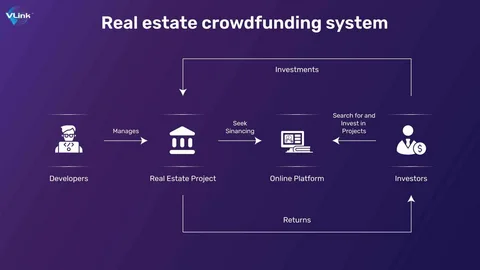Introduction:
Real estate has long been viewed as one of the most stable and profitable forms of investment, notes leading property management team, LRES Management. Traditionally, however, participating in real estate opportunities required significant capital, specialized knowledge, and access to networks often limited to wealthy investors or institutions. That landscape is now changing rapidly. Crowdfunding platforms are democratizing access to real estate investment, allowing small investors to participate in opportunities that were once out of reach. By leveraging technology, transparency, and innovative funding models, these platforms are transforming the way people build wealth through property.
The Traditional Barriers to Real Estate Investment:
“For decades, investing in real estate meant overcoming several major obstacles. The first and most obvious barrier was cost. Buying a property, whether residential or commercial, requires a substantial upfront investment. Beyond the purchase price, investors must also factor in maintenance, legal fees, taxes, and insurance. This alone excluded many small investors from entering the market. Another barrier was access. Historically, real estate investment opportunities circulated through private networks, exclusive partnerships, or institutional channels. Without industry connections, it was nearly impossible for everyday investors to participate in lucrative projects”. Says Zak Omarjee, Founder & CEO, Crowdprop
The Rise of Real Estate Crowdfunding Platforms:
Real estate crowdfunding emerged as a solution to many of these challenges. These digital platforms pool funds from multiple investors, enabling them to collectively finance real estate projects. Instead of purchasing an entire property outright, individuals can contribute smaller amounts, sometimes as little as a few hundred dollars, and own fractional shares of a larger investment. This shift represents a major milestone in financial accessibility. Crowdfunding platforms connect developers or property owners with investors directly, bypassing many traditional intermediaries. Investors gain access to a variety of projects, from residential developments to commercial real estate, without needing the substantial resources once required.
Make Real Estate Investment Affordable for Everyone:
“One of the most transformative impacts of real estate crowdfunding is affordability. Investors no longer need to have hundreds of thousands of dollars to participate. Minimum investment thresholds are significantly lower, opening doors to people who want to diversify their portfolios without overextending their finances. This affordability is particularly appealing to younger investors or those who are new to real estate. Rather than committing to a single large property, individuals can spread smaller amounts across multiple projects. This not only reduces risk but also allows for broader exposure to different types of assets, residential, commercial, mixed-use, or even international developments”. Says David Bonifacio, Founder, SumFunding
Diversification:
“Diversification is a cornerstone of any strong investment strategy. Traditionally, real estate investors had to tie up significant funds in one or two properties, making it difficult to spread risk. Crowdfunding changes that equation entirely. With smaller investment minimums, individuals can allocate capital across multiple projects in different regions, sectors, or asset classes. For example, an investor might contribute to a residential development in one city, a commercial building in another, and a mixed-use project in a third. This approach helps cushion potential losses from underperforming assets”. Says Ali Alshareef, Founder, HissaTech
Technology and Transparency Are Building Trust:
Trust is critical in any investment, and crowdfunding platforms are using technology to enhance transparency like never before. Through secure dashboards, investors can view detailed project information, financial projections, developer track records, and expected returns, all before committing funds. Once invested, they can track the performance of their portfolio in real time. Automated reporting, digital contracts, and transparent fee structures eliminate many of the uncertainties that once plagued real estate investing.
Lowering the Knowledge Barrier:
A way crowdfunding platforms are breaking down barriers is by simplifying the learning curve. Traditional real estate investing often requires extensive knowledge about market trends, property valuation, legal structures, and financing models. Many potential investors were discouraged before they even began. Crowdfunding platforms often provide educational resources, user-friendly interfaces, and expert insights to help investors make informed decisions. Detailed project descriptions, expected timelines, and risk ratings give users a clear understanding of what they’re investing in.
A More Inclusive Investment Ecosystem:
Crowdfunding is creating a more inclusive real estate investment ecosystem. It allows people from different financial backgrounds to participate in wealth-building opportunities that were once reserved for high-net-worth individuals and institutions. This inclusivity also fosters a sense of shared ownership. When multiple investors contribute to a single project, it creates a community of stakeholders who benefit collectively. This community-driven approach can lead to more stable and sustainable investment outcomes.
Conclusion:
Real estate crowdfunding platforms are rewriting the rules of property investment. By lowering financial, knowledge, and access barriers, they are opening doors for a new generation of investors who want to build wealth without massive upfront capital. With technology driving transparency, affordability, and flexibility, small investors can now participate in real estate markets that were once closed off to them. This shift isn’t just changing investment strategies; it’s changing lives. As crowdfunding platforms grow and innovate, they are creating a more inclusive financial future, where opportunities are shared more widely and wealth creation is no longer limited to a select few.








